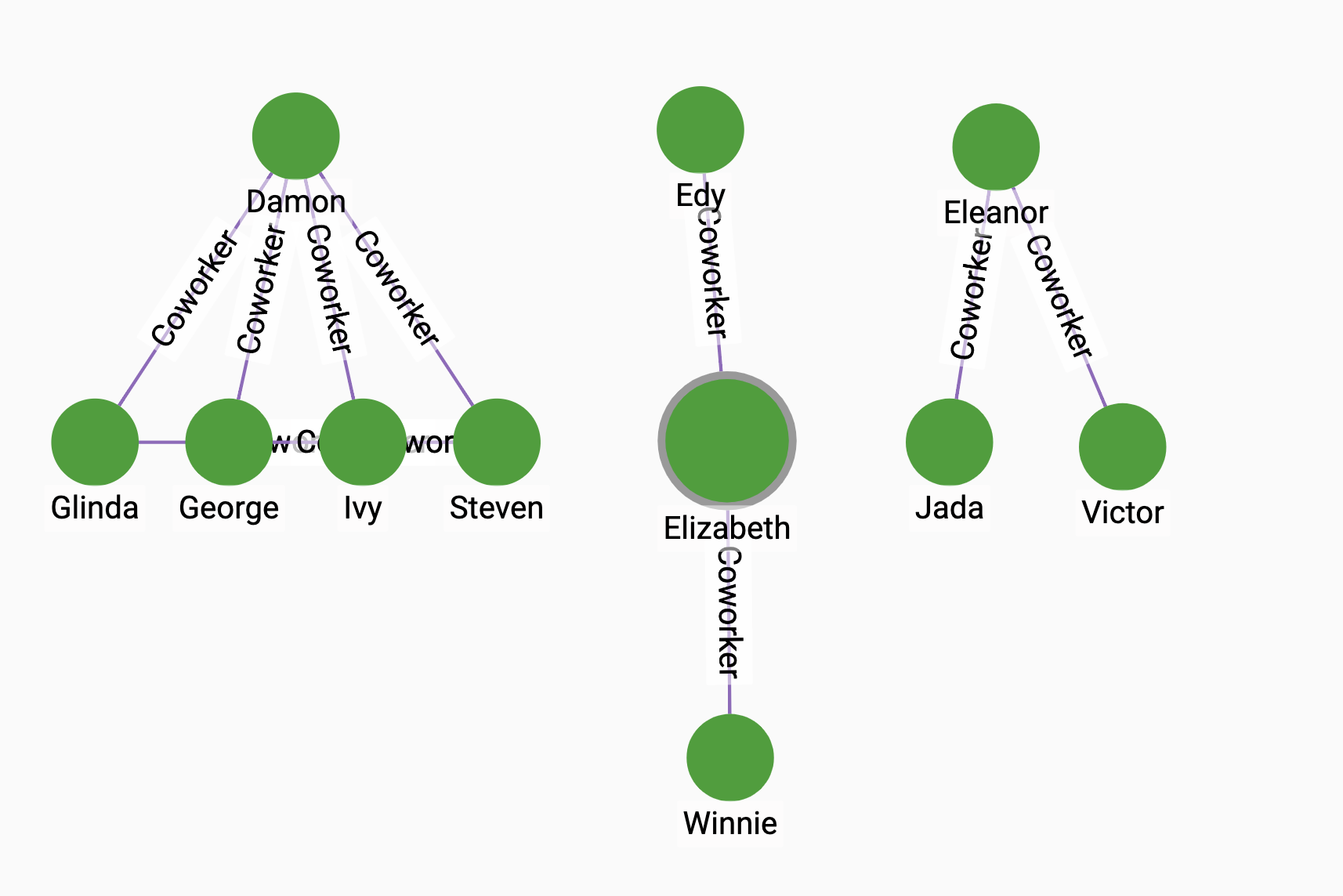WCC (Small-World Optimized)
In addition to the regular weakly connected component algorithm, we also provide a version that is optimized for small-world graphs. A small world graph means the graph has a hub community, where the vast majority of the vertices in the graph are weakly connected.
This version improves upon the performance of the original algorithm when dealing with small-world graphs by combining several methods used to find connected components in a multi-step process.
The algorithm starts by selecting an initial pivot vertex v with a high product of indegree and outdegree. From the initial pivot vertex, the algorithm uses Breadth-First Search to determine the massive weakly connected component. The vertices that are not included in this SCC are passed off to the next step.
After identifying the first WCC, the algorithm uses the coloring method to identify the WCCs in the remaining vertices.
Notes
We use a default value of 100000 for the threshold used to choose initial pivot vertices to increase the chances that the initial pivot is contained within the largest WCC.
Specifications
CREATE QUERY tg_wcc_small_world(STRING v_type, STRING e_type,
UINT threshold = 100000, BOOL to_show_cc_count=FALSE)Parameters
| Name | Description | Default value |
|---|---|---|
|
The vertex type to count as part of a connected component |
(empty string) |
|
The edge type to traverse |
(empty string) |
|
The threshold used to choose initial pivot vertices. Only vertices whose product of indegree and outdegree exceed this threshold will be considered candidates for the pivot vertex. |
|
|
If true, the algorithm will return the number of vertices in each connected component. |
True |
